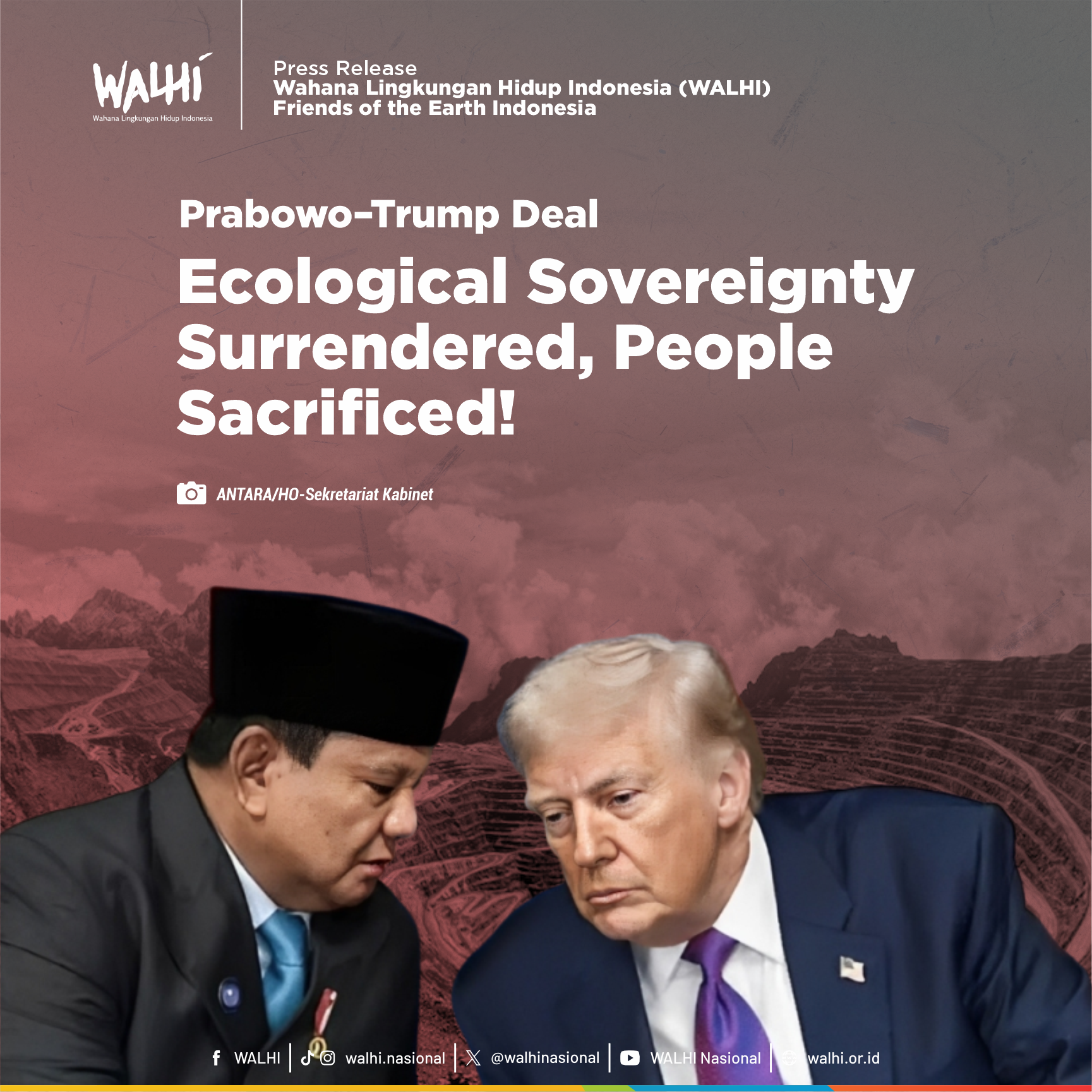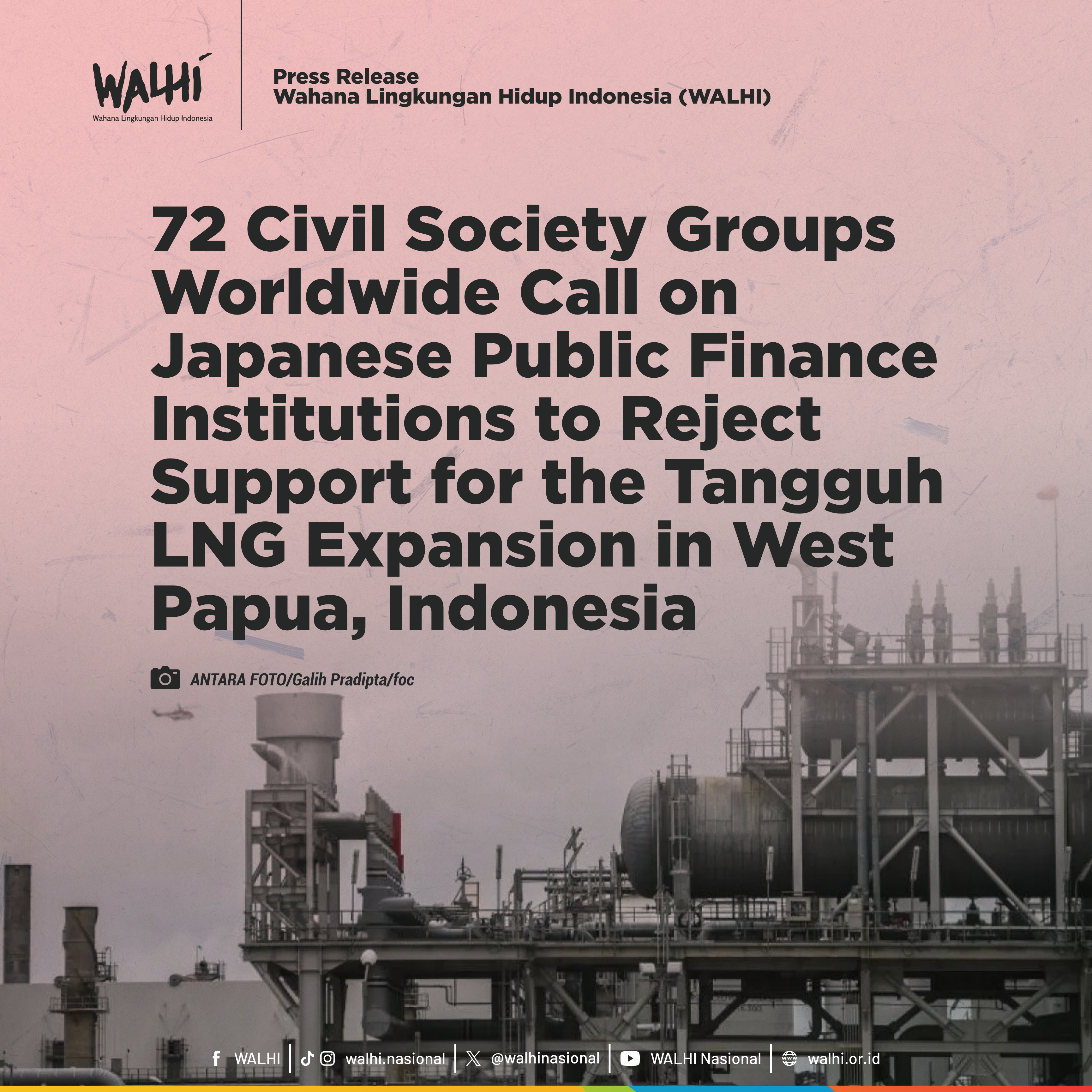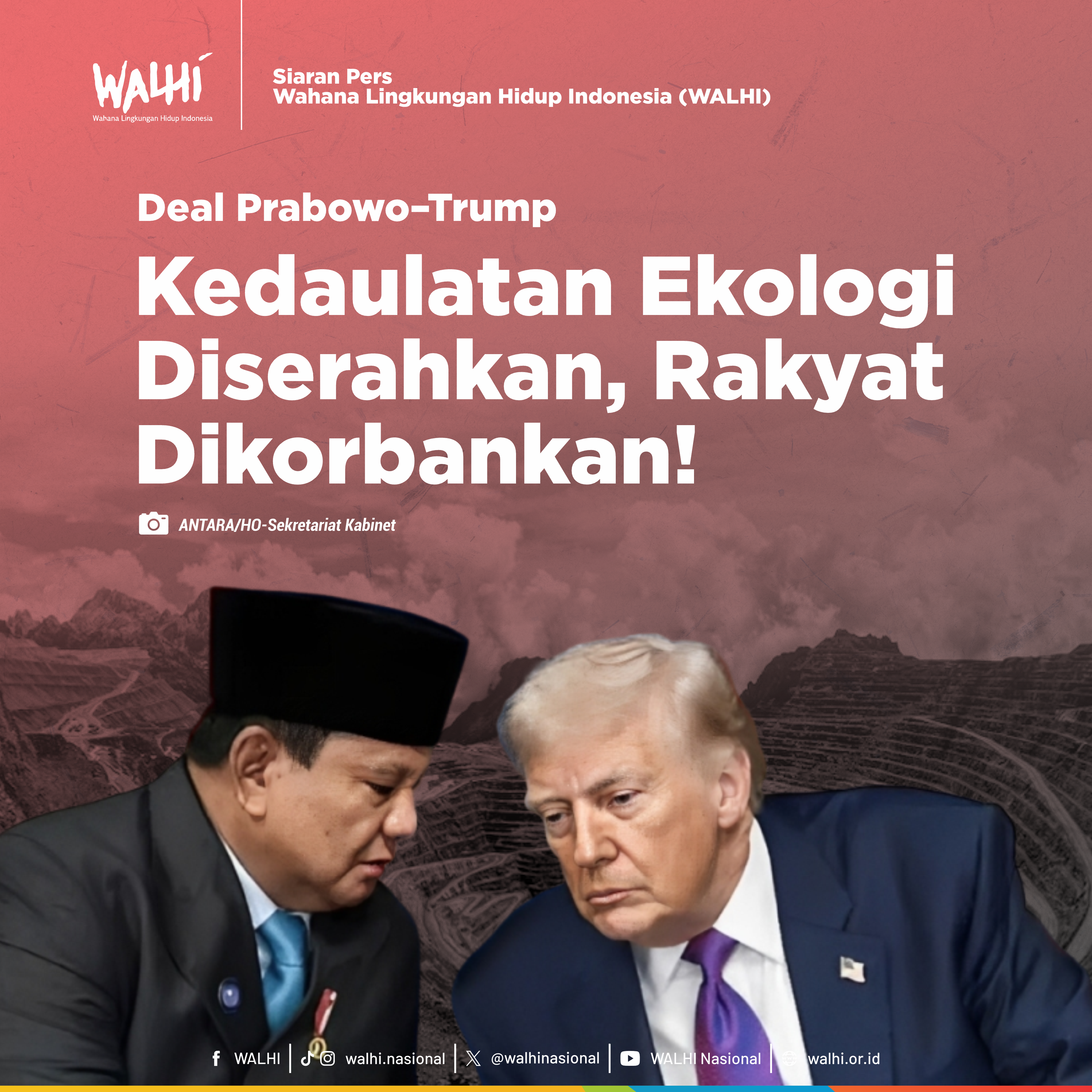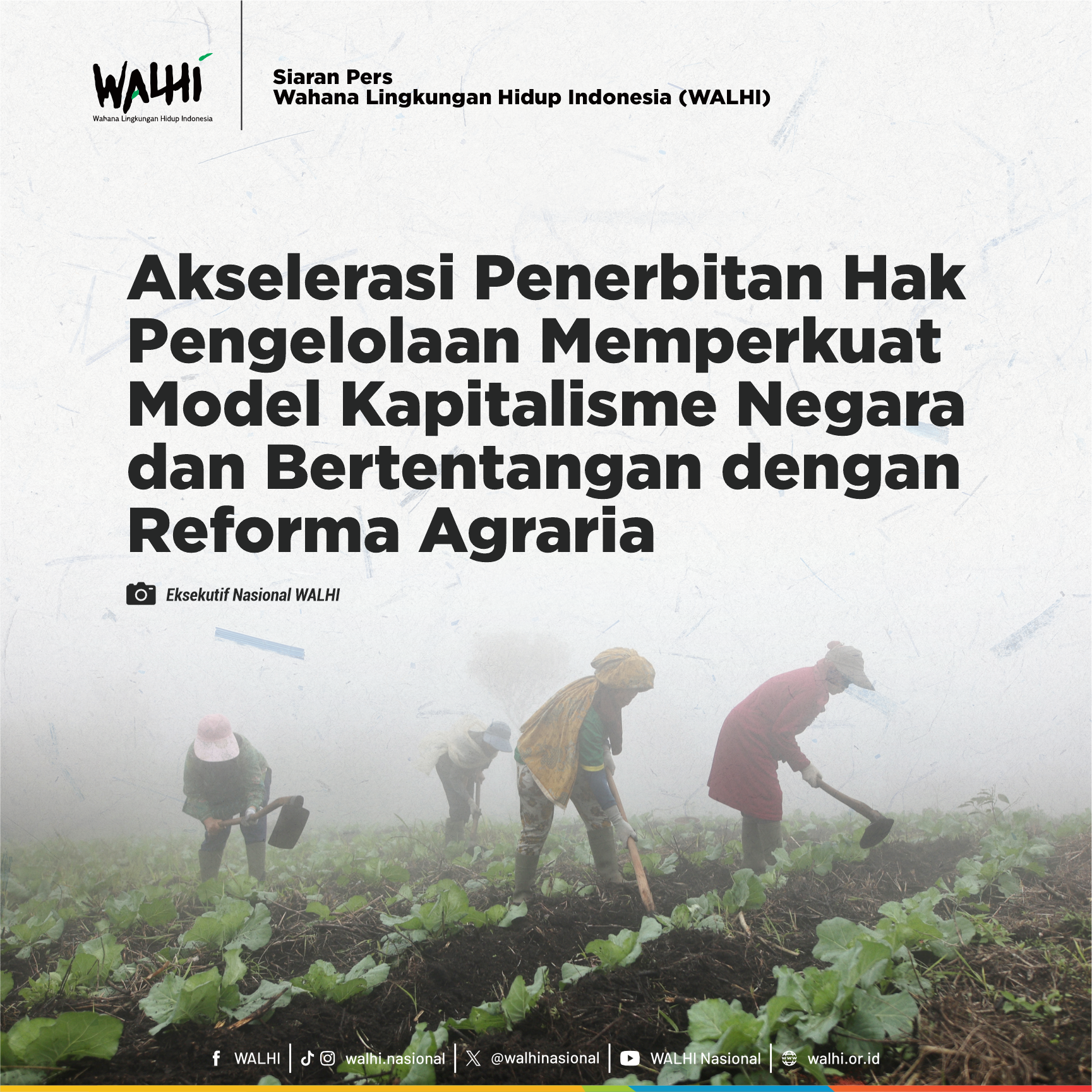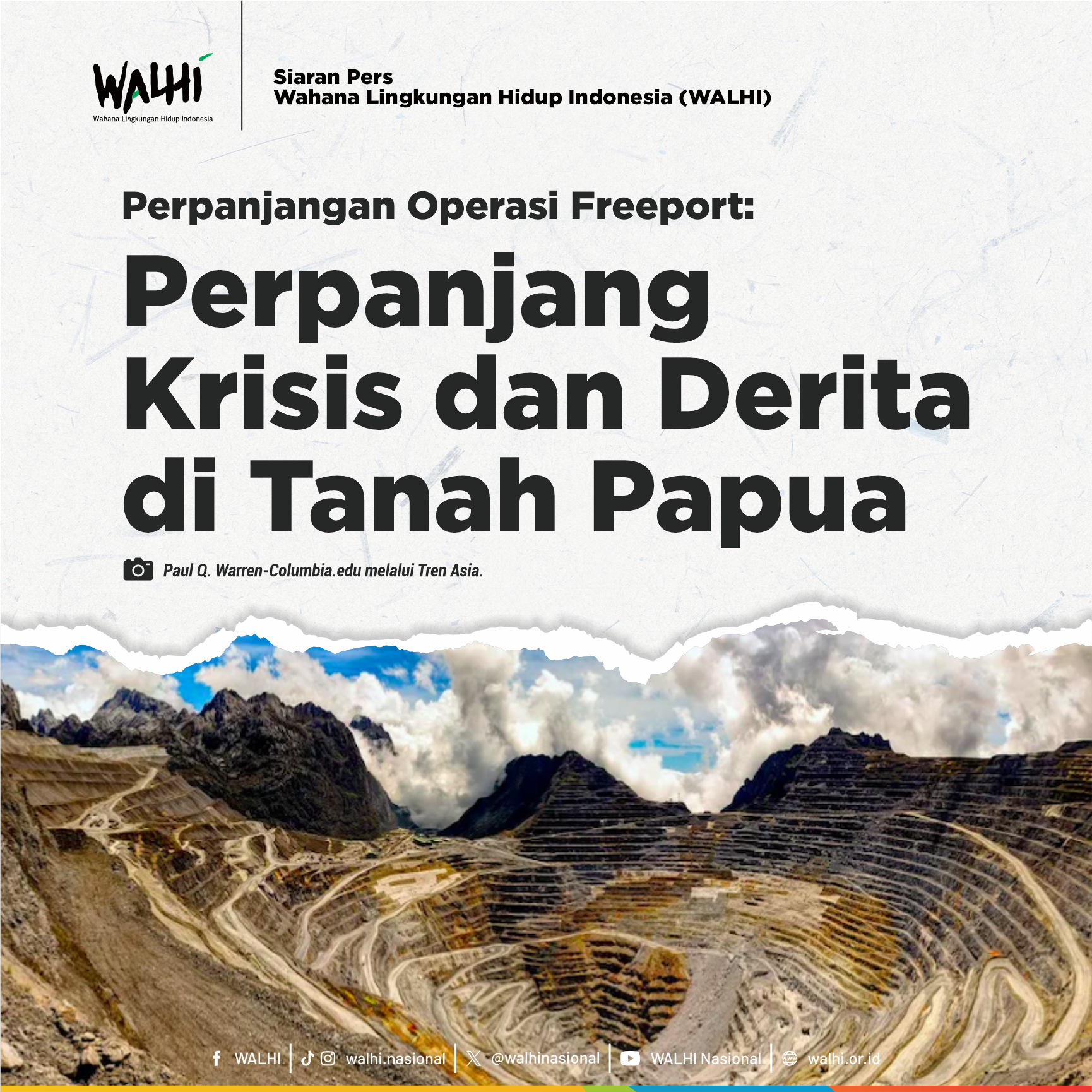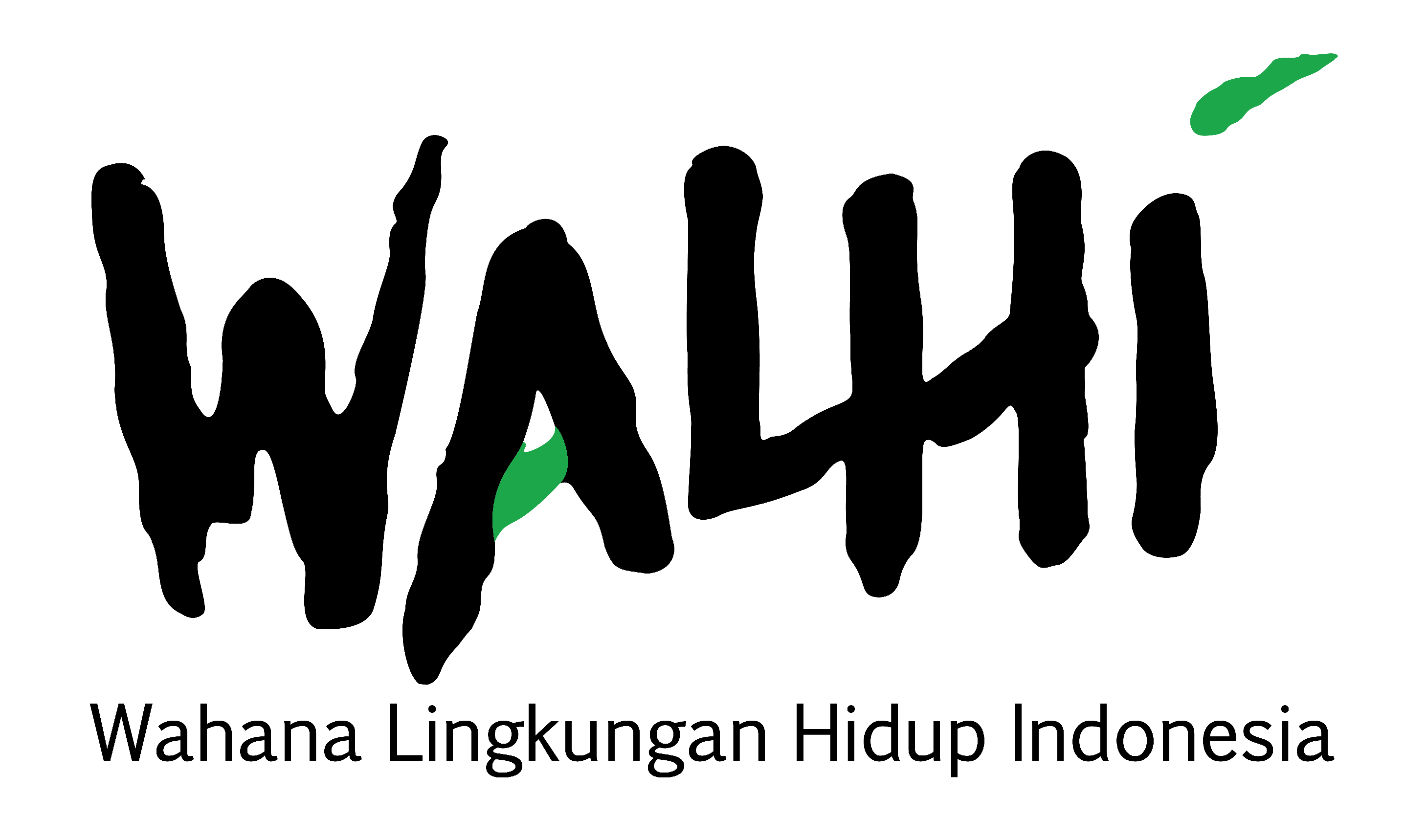Press Release the Indonesian Forum for Environment (WALHI Indonesia) Jakarta, 31 March 2017 – on 5 October 2016, the Supreme Court has ruled in favor of Judicial Review of citizen lawsuit filed by the people of Rembang and WALHI with the register number 99/PK/TUN/2016. The cancellation of license in compliance with the Judicial Review verdict of Supreme Court has in fact stipulated in Law No. 32 of 2009 Article 40 Paragraph 2 regarding Environmental Protection and Management stating that “In terms of the environmental permit is revoked, business permit and/or activity is cancelled”. It means that all activities conducted by PT. Semen Gresik have to be cancelled. There is no legal basis of exception if the company has changed the name of the company or changed its business area. Therefore, the license cancellation penalties remain attached. Ironically, the Governor of Central Java deliberately have committed an unlawful act to disobey the Supreme Court ruling, by issuing a new environmental permit for PT. Semen Indonesia. The legal action as law-abiding citizens is harmed by the state officials. Nevertheless, the farmers of Kendeng are still fighting to defend the environment, land, water, and livelihood. They have tried many ways so that the cement factory is not built in Kendeng Mountains, one of them is doing the cementing action done in front of Presidential Palace. It was aimed to open President’s eyes and heart since the Local Government, in this case is the Governor of Central Java, has not only ignored the constitutional rights of the people, but has also committed to various actions against the law.
WALHI National Executive Director, Nur Hidayati, said that “Regional Autonomy cannot be an excuse for the President to avoid the responsibility over this case and to give the case back to the Governor who has obviously been against the law and violate the good governance. In addition, before that the President has ordered to conduct a strategic environmental study (KLHS) to analyze the support system and capacity in Kendeng Mountains”. Based on the research conducted by WALHI in 2017, it indicates that Java is heading toward a collapse, environmental and social crisis as a result of development model that ignores the carrying capacity and capacity of environment for a long-term future. As one of the plaintiffs, WALHI along with the other civilian organizations continues to support and urge President Jokowi in taking over this case in accordance to his authority as stipulated in Law 32/2009. The President has in fact the authority to solve this problem due to the act of Governor of Central Java that violated the law by issuing the environmental permit, which is legally, substantially and procedural flawed as stipulated in Law 32/2009 regarding the Environment Protection and Management. The fight of farmers of Kendeng Mountains has triggered fighting spirit in many regions in which also are fighting for the safety of its karst areas threated by mining extractive industry, both owned by the State-Owned Enterprise (SOE/private) such as PT. Semen Indonesia and private company/Foreign SOE such as PT. Conch, PT. Indocement/Heidelberg and PT. Holcim.
The support has grown further from many civilian organizations. In many regions throughout Indonesia, WALHI along with its network initiates solidarity action such as those initiated by WALHI South Sulawesi, WALHI South Sumatera, WALHI Jambi, WALHI Bangka Belitung, WALHI Riau, WALHI West Java, WALHI Central Java, WALHI South-East Sulawesi and will continue to spread in many other regions. In addition to being part of solidarity act in supporting the fight of farmers of Kendeng who defend their land and water, this action also strengthen the commitment of WALHI to continuously rescue the karst area having ecology function as well as cultural social function and living sources for the people living in karst area. Other than in Java (Rembang, Pati, Blora, Grobogan, Kebumen, Wonogiri and Kendal), the demolition of karst area also happens in Aceh, East Kalimantan, South Kalimantan, West Sumatera, South Sulawesi, West Java and many other regions. It is pathetic to realize that the exploitation of karst area for, among many others, cement industry will trigger further exploitation and problem in other sector such as coal as the support for the needs of the cement industry. We realize that coal industrial mining causes a huge fact crisis and violation of human rights. Agrarian conflict will also increase, agricultural land and the life of the people will be eroded. This is an irony given the fact that President Jokowi has promised to execute the agenda of Agrarian Reform. The government should learn from the failure of managing ecosystem area of peat lands, which caused the continuous haze tragedy and ended up cost the people and state so much, and it took a long time for recovery. Therefore, WALHI urges the President to immediately issue a policy or regulation to protect the karst ecosystem which is one of the essential ecosystems and is vulnerable from threat of industrial extractive and other exploitative development practices. (end) Contact Person: 1. Khalisah Khalid; Head of Campaign and Network Development Department at 081290400147 2. Malik Diadzin; Media and Public Communication Staff at081808131090 Note for Editor: 1. The Supreme Court Verdict states: (1) in favor of the plaintiff in its entirely, (2) Declare void on Decree of Governor of Central Java Number 660.1/17 of 2012 by PT. Semen Gresik (Limited Liability Company) Tbk. in Rembang Regency, Central java; (3) Oblige the defendant to revoke Decree of Governor of Central Java Number 660.1/17 of 2012 on 7th June 2012 regarding Environmental Permit by PT. Semen Gresik (Limited Liability Company) Tbk. in Rembang Regency, Central Java. 2. Law No. 32 of 2009 Article 73 regarding Environmental Protection and Management states that Minister may supervise the compliance of responsible business and/or activity of which the environmental permit was issued by the local government if the government considers some serious violation in environmental protection and management sector.

